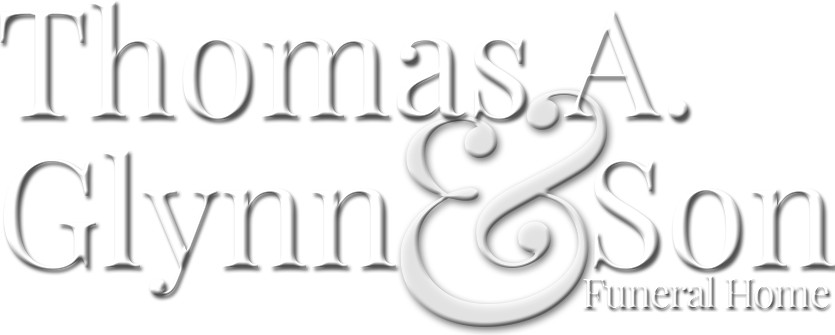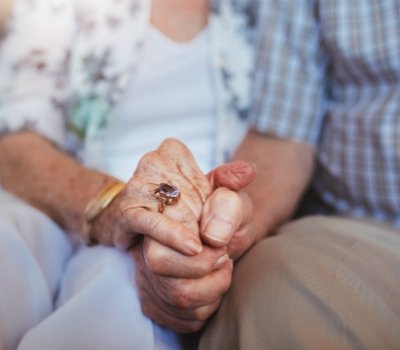Cremation Services
What we will do
Treat your loved one with the highest level of professionalism, dignity, courtesy and reverence.
Wash, dress and sanitize your loved one and make them presentable for identification.
Transport your loved one individually in a private funeral coach with a licensed funeral director in attendance.
Transport your loved on to a reputable crematory that we have personally inspected.
Ensure proper chain of custody between your loved one's human remains and cremains. We will also ensure a proper timeline for the return of their remains to you.
Assist you and explain your options for your loved ones final resting place.
What we will not do
Show disregard for the security of the deceased nor do anything to devalue their humanity
Cremate your loved one in soiled linens from home or hospital.
Transport your loved one in a van with other deceased persons.
Leave your loved one at an unfamiliar or out of state facility.
Consider our obligation complete until you have received and accepted your loved ones cremains.
Anything to diminish the dignity of your loved one nor our reputation.
Direct Cremation:
Prices Range From $3,100.00
Which includes the local transfer of remains to the Funeral Home Funeral Director and staff services, securing of necessary authorizations, local transportation to the crematory, an alternative container for cremation, basic urn and the return of the cremains to the Funeral Home.
To $2,950.00
Which includes the services as described above but with the cremation container supplied by the customer. If you want to arrange a direct cremation, you may use an unfinished wooden box or and alternative container. Alternative containers can be made of heavy cardboard, pressed wood or composition materials (with or without an outside covering), or may be pouches of canvas or other materials.
The direct cremation prices do not include the crematory charge or other cash advance items selected.
Cremation with Family Identification
Prices Range From $4,620.00 To $3,345.00
Which includes the local transfer of remains to the Funeral Home, Funeral Director and staff Services, Limited viewing (1 Hour), Topical disinfection, securing necessary authorizations a cremation casket or alternative container for cremation, Basic Urn and the return of the cremains to the Funeral Home.
Prices do not include the crematory charge or other cash advance items selected.
Cremation with Memorial Service
Prices Range From $5,130.00 to $3,855.00
Which includes the local transfer of remains to the Funeral Home, Funeral Director and staff services, Limited 2 Hour Memorial Service, Register Book, 50 Memorial Cards, Acknowledgement Cards, Supervision during the Services, securing of necessary authorizations, local transportation to the crematory, a cremation casket or alternative container for cremation, BasicUrn and the return of the cremains to the Funeral Home.
Prices do not include the crematory charge or other cash advance items selected
Cremation following Funeral Service
Prices Range From $8,950 to $7,525.00
Which includes the local transfer of remains to the Funeral Home, Embalming, Dressing, Cosmetology, Funeral Director and staff services, 4 Hour Wake Service, Register Book, 50 Memorial Cards, 50 Acknowledgement Cards, Supervision during the Services, securing of necessary authorizations, local transportation to the crematory, a cremation casket and the return of the cremains to the Funeral Home.
Prices do not include the crematory charge or other cash advance items selected
Cremation is an alternative to the burial process and it is chosen by many people because of religious beliefs, the desire to preserve the environment or it was requested by the person who died. Cremation is also a less expensive option in comparison to a burial. The remains are placed in a container that is combustible and placed in a special furnace called a cremation chamber or a crematory where through intense heat is reduced to bone fragments that are then crushed and pulverized to resemble course sand. The cremated remains of an average adult body will weigh about 7-8 pounds. Cremation is not an alternative to a funeral, but rather an alternative to burial or other forms of disposition.
Cremated remains can be scattered or buried, or they may be kept with the family in a decorative urn. There are many new and different ways to dispose of ashes today, cremated remains can be placed in an artificial coral reef in the ocean, they can be launched into space or sent up in helium balloons, or they can be spun into glass pieces of art or diamonds.
Some religions welcome cremation while others forbid it. The Catholic Church had banned cremation up until 1963, and burial remains the preferred form of disposition today. In other Christian denominations cremation was historically discouraged but nowadays it is more widely accepted. In eastern religions such as Hinduism, Jainism, Sikhism and Buddhism cremation is mandated, while in Islam it is strictly forbidden. Orthodox Jews also forbid cremation; other sects of Judaism support cremation, but burial remains the preferred option.
Many people often say “it’s just a cremation” and believe that very little work or preparation is entailed. That is a great misconception regarding this form of disposition. Cremation carries the potential for great liability. Many people feel that they can shop for a cremation provider until they find the lowest price. What they fail to recognize is that the low cost provider may NOT be providing the dignity and professional guarantees that our firm will extend. If you shop for a cremation provider solely based on cost, you will find one. But as everything in life, you will get what you pay for.
Although there are options with cremation ranging from a full service wake and religious service, to a cremation with a later memorial gathering, one thing does NOT change, our commitment to the solemnity of the life that has passed. Our level of care does not waiver regardless of the method of disposition. We remain a dedicated and caring staff of professionals that avail ourselves to a family 24 hours a day, 7 days a week. We take the time to meet with you, answer your questions and provide you with the full benefit of our professionalism and expertise.
To ensure your peace of mind, we strongly urge you to identify your loved one prior to cremation in the comfort of our chapel.
Cremation FAQ
What is Cremation?
Cremation is the process of reducing the human body to bone fragments using high heat and flame. Cremation is not the final disposition of the remains, nor is it a type of funeral service.
Is a casket needed for Cremation?
No, a casket is not required, most states require an alternative container constructed of wood or cardboard, however, in some states no container is required.
Is embalming required prior to cremation?
No. In fact it is against the law for a funeral home to tell you otherwise.
Can the body be viewed without embalming?
Yes, most crematories allow immediate family members to briefly view the deceased prior to cremation.
Can the family witness the cremation?
Yes they can; some cremation providers will allow family members to be present when the body is placed in the cremation chamber. Some religious groups even include this as part of their funeral custom.
Can an urn be brought into church?
Nearly all Protestant Churches allow for the urn to be present during the memorial service. Most Catholic Churches also allow the remains to be present during the Memorial Mass. It is encouraged that cremated remains be a part of a funeral as it provides a focal point for the service.
What can be done with the cremated remains?
While laws vary state by state, for the most part remains can be buried in a cemetery lot or a cremation garden, interred in a columbarium, kept at home or scattered.
How can I be sure I receive the correct remains?
All reputable cremation providers have developed rigorous sets of operating policies and procedures in order to maximize the level of service and minimize the potential for human error. Since it is illegal to perform more than one cremation at a time, and the vast majority of crematories can only cremate one body at a time, it is next to impossible to receive the incorrect remains.
How long does the actual cremation take?
It all depends on the weight of the individual. For an average sized adult, cremation can take two to three hours at a normal operating temperature of between 1,000 and 2,000 degrees Fahrenheit.
What do the cremated remains look like?
Cremated remains resemble coarse sand and are whitish to light grey in color. The remains of an average sized adult usually weighs between 7 and 8 pounds.
Are all the cremated remains returned?
With the exception of minute and microscopic particles, which are impossible to remove from the cremation chamber and processing machine, all of the cremated remains are given back to the family.
Do I need an urn?
An urn is not required by law. However, an urn may be desired if there is to be a memorial service or if the remains are to be interred in a cemetery. If an urn is not purchased or provided by the family, the cremated remains will be returned in a temporary plastic container.
AT-NEED GUIDANCE
Whether a death is sudden or expected, the loss of a loved one is indescribable. When you are in a heightened emotional state, even the most basic decisions can seem staggering.
> LEARN MORE
PRE-NEED RESOURCES
Taking the time to arrange your funeral now leaves one less thing your loved ones will need to worry about once you’ve passed. We are here to help you every step of the way.
> LEARN MORE
SEND FLOWERS
Our local florists are committed to offering only the finest floral arrangements, and are backed by their professionalism and prompt service.
> CLICK HERE




